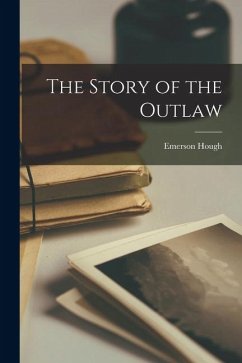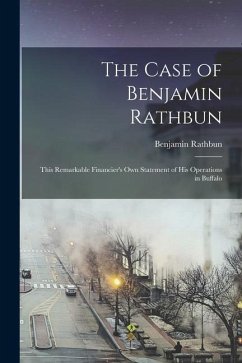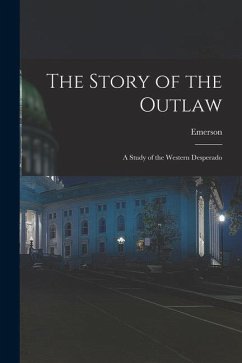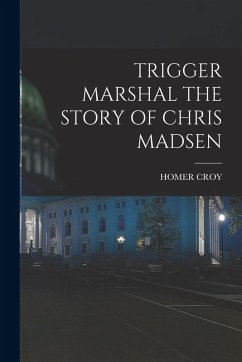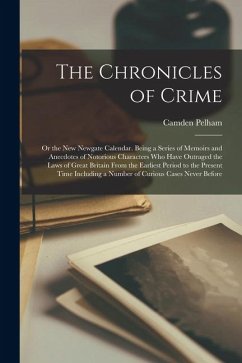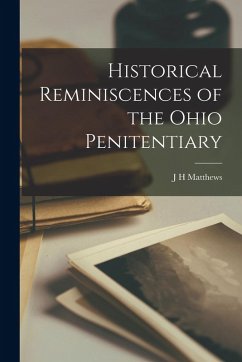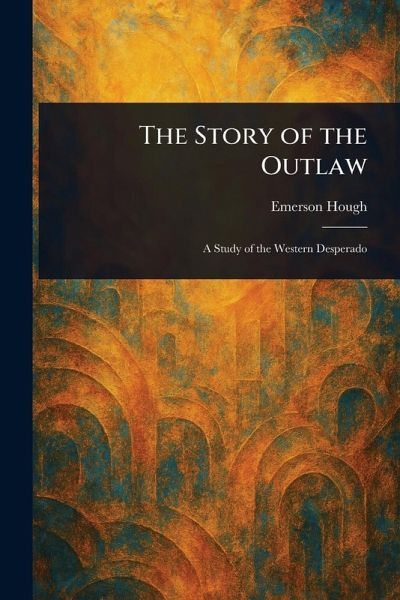
The Story of the Outlaw
Versandkostenfrei!
Versandfertig in über 4 Wochen
18,99 €
inkl. MwSt.
Weitere Ausgaben:

PAYBACK Punkte
9 °P sammeln!
"The Story of the Outlaw: A Study of the Western Desperado" by Emerson Hough delves into the captivating history of crime and frontier life in the American West. This meticulously prepared print republication explores the lives and legends of outlaws and desperadoes who roamed the 19th-century West, shaping its tumultuous narrative. Hough's work provides a historical examination of these figures against the backdrop of a rapidly changing nation. Explore the social and geographical landscape that fostered these lives of crime. This study offers insights into the motivations, methods, and impact...
"The Story of the Outlaw: A Study of the Western Desperado" by Emerson Hough delves into the captivating history of crime and frontier life in the American West. This meticulously prepared print republication explores the lives and legends of outlaws and desperadoes who roamed the 19th-century West, shaping its tumultuous narrative. Hough's work provides a historical examination of these figures against the backdrop of a rapidly changing nation. Explore the social and geographical landscape that fostered these lives of crime. This study offers insights into the motivations, methods, and impact of those who operated outside the law, contributing to our understanding of the American West and its enduring mythology. A compelling read for anyone interested in the history of the American West and the social forces that shaped it. This work has been selected by scholars as being culturally important, and is part of the knowledge base of civilization as we know it. This work is in the public domain in the United States of America, and possibly other nations. Within the United States, you may freely copy and distribute this work, as no entity (individual or corporate) has a copyright on the body of the work. Scholars believe, and we concur, that this work is important enough to be preserved, reproduced, and made generally available to the public. We appreciate your support of the preservation process, and thank you for being an important part of keeping this knowledge alive and relevant.





